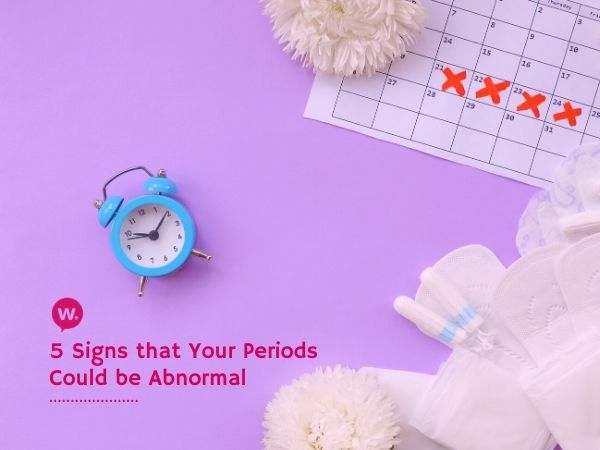Determining whether your periods are regular or not relies upon what’s typical and normal for you. And what determines whether your period is normal or not?
- Duration of your period (number of days)
- Gap between your two monthly periods
- Number of days you bleed during the periods
- Amount of bleeding during each period (heavy bleeding or scanty bleeding than usual)
If you have observed that off late your periods are not normal than usual , it could be due to various reasons, including hormonal disturbances and chronic conditions like PCOS, thyroid disorders or anemia. Speaking to your doctor can assist you with figuring out why your period is being unusual, and how to solve it.
Abnormal or irregular periods can also be a symptom of underlying genuine medical problems—yet, that is not generally the situation. Obviously, the most ideal approach to get to the root cause.
It’s worth visiting your doctor if you’re bleeding more heavily than usual or notice large blood clots.
In case your bleeding appears to be a bit heavier than normal or heavier than you’d expect, that could be an indication that your period isn’t exactly “normal.”
“Doctors consider periods to be ‘too’ heavy when a period keeps going more than seven days or in case a lady is changing a soaked pad or tampon more frequently than each three hours,” Dr. Nita Thakre, Gynecologist explains. “Clots that are smaller than a quarter okay, clots the size of an egg are not normal.”
Moreover, in case you do bleed intensely, it’s important to talk to your doctor and let them know since it could be more than fair heavy bleeding — the bleeding could be characteristic of something else.
“Heavy [bleeding] can be a sign of a structural uterine problem like polyps or fibroids,” Dr. John Thoppil, MD, an OB/GYN, told INSIDER. And, those are typically benign. “However, pre-cancer or cancer affected (various cancers of women) can present with heavy bleeding in women over 35 or with risk factors.”
Spotting between periods ordinarily shouldn’t happen in every cycle but bleeding between periods every month is also abnormal— unless you’re on birth control,” Dr. Nita said. Having a period that keeps going longer than a week may well be cause for concern.
Although each lady is different, her body is different, a typical menstrual cycle lasts between 21 to 35 days from the beginning of one period to the first day of the next. Bleeding during a period typically lasts for two to six days. Period patterns also change if a lady is in peri-menopause or menopause phase of her life.
“If you skip a period, take a pregnancy test in case there’s a chance that you are pregnant,” says Dr. Nita. A home pregnancy test can be used. But to be very sure of the pregnancy, a blood test can be adviced by your Gynecologist.
“For any bleeding (or lack of bleeding) that is a new change, or one that is worrying, you should see a health professional,” Dr. Nita. “The typical evaluation for abnormal periods includes a physical exam, lab tests, ultrasound and sometimes a biopsy.






,